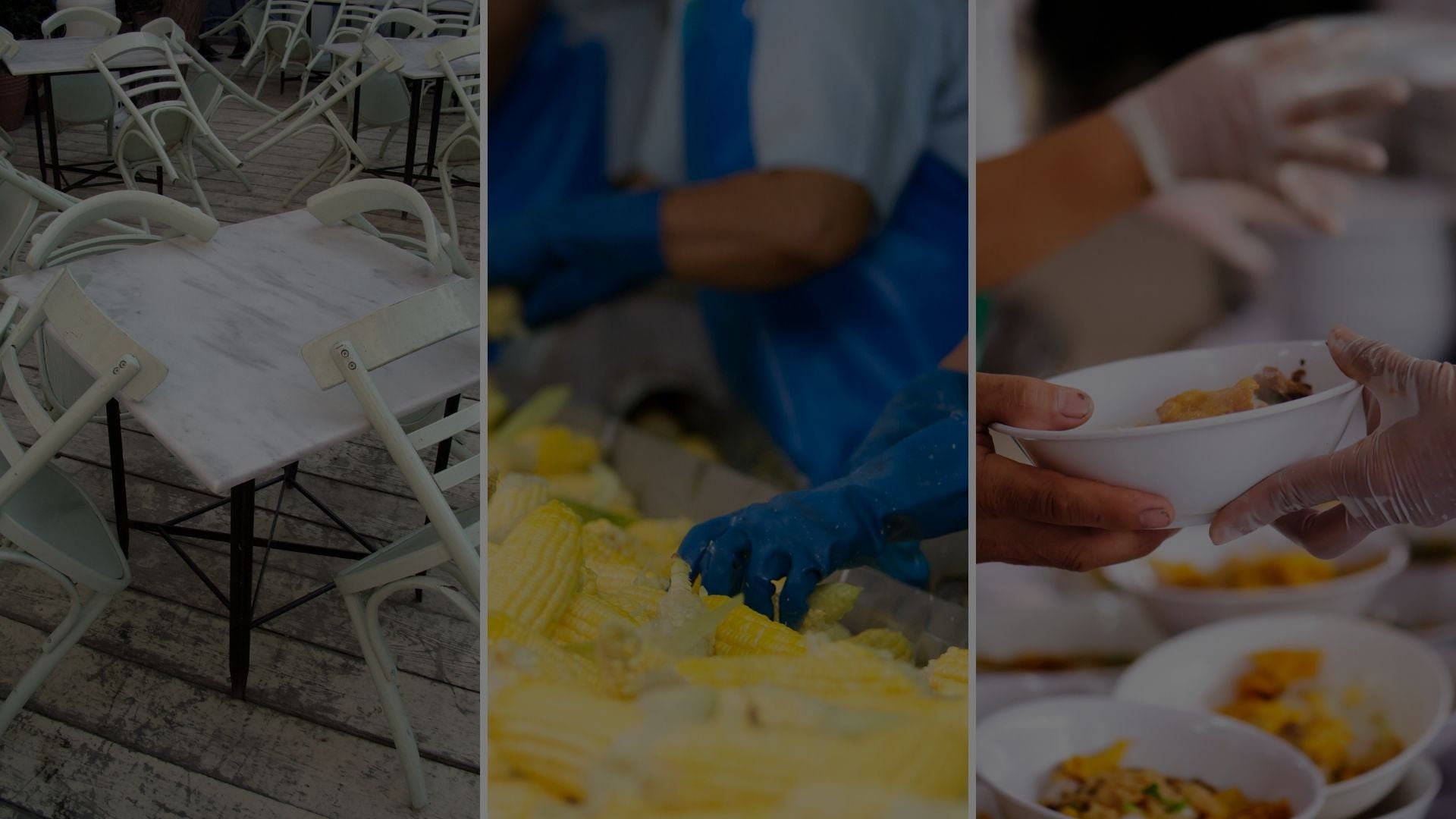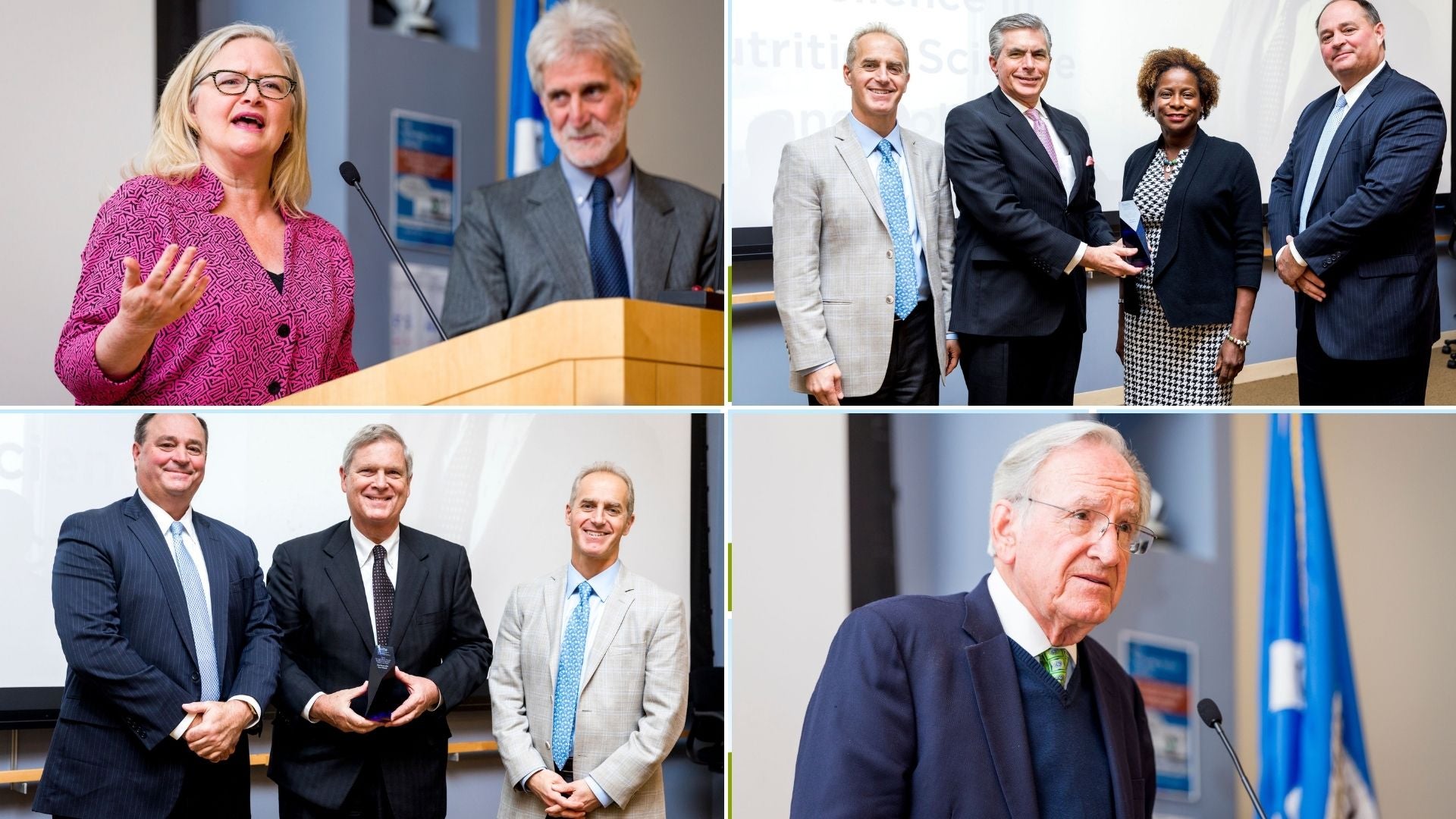Celebrating Champions for Food Justice & Food Security
The Gerald J. and Dorothy R. Friedman School of Nutrition Science and Policy at Tufts University awarded the school’s biennial $100,000 Jean Mayer Prize for Excellence in Nutrition Science and Policy to three organizations for their collective efforts to support food communities and empower individuals through food and nutrition before and throughout the COVID-19 pandemic.
The three recipient organizations were: the HEAL (Health, Environment, Agriculture, Labor) Food Alliance, James Beard Foundation, and World Central Kitchen.
The Jean Mayer Prize is a biennial award, supported through a gift to the Friedman School from John Hancock, to recognize outstanding achievement and work in science and/or policy related to food and nutrition.
COVID-19 & The Food System: A Discussion
“These three organizations have been powerful drivers for change and addressing pressing challenges in food and nutrition from the COVID-19 crisis,” said Mozaffarian, who is also Jean Mayer Professor at the Friedman School. “Whether advocating for support of Black, Indigenous, and people of color workers as they endeavor to create more equitable food systems; equipping chefs and restaurants with the tools and platforms they need to ensure more people have access to good, nutritious, sustainably produced food; or providing nutritious meals to those in need in the face of natural disasters, this year’s Jean Mayer Prize recipients together display a fierce passion for improving health, well being, and nutrition for all.”
The 2020 recipients sprang into action during a year of growing food insecurity and the near-collapse of the restaurant industry that led to widespread unemployment during a pandemic. During all of the turmoil they showed their strength and advocated for more resources, a focus on worker safety, a commitment to equity, and supporting small businesses:
- The HEAL (Health, Environment, Agriculture, Labor) Food Alliance brings together food and farm justice groups to address corporate control and racism in our food and farm systems. HEAL is committed to creating systems that are healthy, accessible and affordable for all, and fair to the people who grow, distribute, prepare, and serve food, while protecting the air, water, and land. During the pandemic HEAL is organizing and advocating for resources for Black, Indigenous, and people of color (BIPOC) producers, and with frontline food workers for safer working conditions.
- James Beard Foundation, a nonprofit organization devoted to celebrating, nurturing, and honoring chefs and other leaders who make America’s food culture more delicious, diverse, and sustainable for everyone. During the COVID-19 crisis, the foundation has launched “Open for Good,” a campaign to support the recovery and rebuilding of an independent restaurant industry and is launching a new investment fund for Black and Indigenous-owned businesses impacted by COVID-19.
- World Central Kitchen, a not-for-profit organization that uses the power of food to heal communities and strengthen economies in times of crisis. During the COVID-19 pandemic, the organization has distributed more than 29 million fresh, nutritious meals to people and communities in need. Its Restaurants for the People program attacks the growing hunger and economic crises on two fronts by paying local restaurants to cook fresh meals for their neighbors in need—at the same time getting food to hungry people and keeping restaurants and their teams open and working.

Creating Change During a Crisis
“These three organizations have been powerful drivers for change and addressing pressing challenges in food and nutrition from the COVID-19 crisis,” said Mozaffarian, who is also Jean Mayer Professor at the Friedman School. “Whether advocating for support of Black, Indigenous, and people of color workers as they endeavor to create more equitable food systems; equipping chefs and restaurants with the tools and platforms they need to ensure more people have access to good, nutritious, sustainably produced food; or providing nutritious meals to those in need in the face of natural disasters, this year’s Jean Mayer Prize recipients together display a fierce passion for improving health, well being, and nutrition for all.”
Past Prize Winners
The inaugural Jean Mayer Prize was awarded in 2018 to Senator Tom Harkin, Former Secretary of Agriculture Tom Vilsack, the Center for Science in the Public Interest, and Mission: Readiness for their collective efforts to raise awareness of the risks of diet-related disease and advocacy for policies such as the 2010 Healthy Hunger Free Kids Act that champion better nutrition for children.

About Jean Mayer
Long before Jean Mayer became the tenth president of Tufts University in 1976, he was a war hero. He fought with French forces in the battle of Dunkirk. After one skirmish with German soldiers, he had to walk several days with a bullet in his foot, leaving him with a permanent limp.
So it’s no wonder that when Mayer decided to take on the challenge of creating the first school of nutrition in the country, he did it with determination.
Mayer was a brilliant bench scientist, said Dariush Mozaffarian, dean of the Friedman School, but he knew that nutrition is also about behavior, economics, and policy.
“He really understood translating science into action,” Mozaffarian said. “That really to this day defines the Friedman School.”
